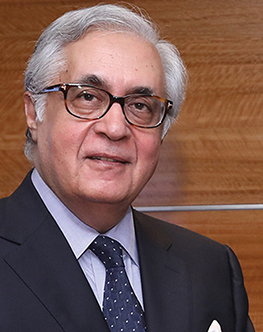National Bank of Pakistan (NBP) is refocusing its business strategy to set “a clear road map” to address what chief executive officer Arif Usmani has defined as the bank’s three biggest challenges. “The first is to put in place a robust and world-class technology platform to be able to serve our core business customers,” says Mr Usmani. “We also need to upgrade the bank’s human resources function and the third priority is to work on our international franchise.”
NBP currently has a presence in 19 countries. Mr Usmani says the bank has identified major opportunities in its domestic business via a new initiative focused on underserved segments such as agriculture, where with its wide rural network it already has the largest presence in Pakistan, plus small and medium-sized enterprises, microfinance and micro-housing.
Digital investment needed
To help achieve its goals in a sustainable manner, NBP is looking to invest heavily in digital technology. “We have not paid enough attention to this in the past and we need to build strong digital capabilities quickly,” says Mr Usmani. “We are looking at upgrading our core banking system and our applications.”
NBP is currently 75.5% state owned, after floating a 24.5% stake on the market in 2001. Despite this majority state ownership, currently only one government official sits on the board; Mr Usmani says the remaining eight board members are professionals with significant relevant experience. Pakistan’s banking system has been heavily skewed toward investing in government paper, which has accounted for up to two-thirds of banks’ balance sheets. Private sector lending, on the other hand, has suffered, accounting for only 19% of the country’s gross domestic product for at least the past 15 years, a figure less than half that of Bangladesh and one-third of India’s.
Microfinance is also seen as another underserved business. NBP’s chairman, Zubyr Soomro, believes this is a missed opportunity. “The default ratio in this sector is 1% to 2% and the sector has about 6 million borrowers against an estimated market size of 27 million. This compares with Bangladesh’s 30 million, so there is considerable opportunity for growth. NBP’s approach is one of wholesale lending to support the sector; that is, financing the institutions that extend these small loans. Banks need to reposition their business models to reach this customer segment,” he says.
Mr Soomro cites NBP’s dominant role in government-connected businesses as a key competitive advantage. “We are responsible for at least 80% of the salaries and pensions paid to government employees,” he says. “We also act as lead bank to the 204 domestic enterprises in which the government holds a stake. Wherever the State Bank of Pakistan lacks a presence, we act on its behalf. In all these areas, leveraging digital capabilities can enhance our business.’
Rural customers
A crucial area of NBP’s operations lies in dealing with the country’s rural customers. “We have the largest agricultural book of any Pakistani bank, with 70 years of experience behind us,” says Mr Soomro. “Greater engagement with this sector will lead to the opening up of other opportunities, including in micro-housing and off-grid solar power financing.”
Future expansion in this core segment is closely linked to the development of the bank’s digital platform, according to Mr Soomro. “We are still behind the curve in technology and we are aware that further outreach is not going to be achieved through bricks and mortar,” he says. Technology investments typically require board approval but generally a boardroom's understanding of this area is limited and thus members of the board has been reluctant to support such proposals.
“We now have a team composed of professionals and we have put in place a committee for IT with the requisite skills and we are moving ahead in this highly challenging area,” says Mr Soomro. “NBP was established as a 100% government-owned bank 70 years ago and the corporate culture was that of a public sector institution. Changing this mindset and encouraging people to take decisions and do so expeditiously was the real challenge. The bank did not lack talent but it needed to be nurtured and rewarded based solely on performance.”
Mr Soomro says NBP’s core business strategy is underpinned by a focus on customer service, and this needs to be supported by a significant enhancement of the bank’s technology infrastructure. “We will utilise every digital channel to maximise our business outreach and meet our customers’ expectations in both conventional and Islamic banking products,” he says. “Efforts will also be made to achieve better expense management through operational efficiencies and effective internal controls.”












